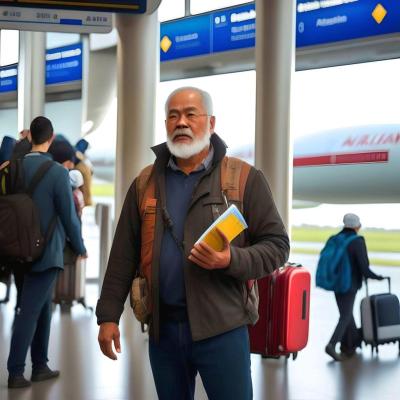An Unexpected Denial
The complainant argues that the decision to bar him from the flight was unexpected and unjustifiably imposed by a contractor at Heathrow Airport. He claims that there was no prior notification stating that passengers were required to carry proof of vaccination. However, the insurer points out that the airline's website did specify vaccination requirements for travel before September 15 last year.
Furthermore, the Smart Travel website also highlights the need for travellers to adhere to airline travel requirements, including those related to Covid-19. The complainant's lack of awareness and diligence regarding these requirements potentially weakened his case.
Mode of Transport or Personal Circumstance?
The insured believes that the incident should be covered under the policy's coverage for accidents that affect "your mode of transport." However, the Australian Financial Complaints Authority (AFCA) disagreed, stating that the accident did not directly impact the mode of transport but rather the traveller personally.
According to AFCA, the flight proceeded as scheduled without the complainant and his family, who were the only ones denied entry due to their inability to provide vaccination proof. As a result, AWP Australia was entitled to decline the claim, as there was no demonstrated claimable event that caused the loss.
While AFCA agreed with the complainant's request for reimbursement of additional meal expenses due to the travel delay, as per their preliminary dispute assessment, the denial of coverage for the alternative flight costs remained upheld. Thus, the insured was only partially successful in his claim.
Implications and Takeaways
This case raises important considerations for travellers and their insurance coverage. It serves as a reminder to thoroughly research and understand travel requirements, including vaccination mandates, before embarking on a trip.
Travellers must also carefully review their travel insurance policies to ensure they adequately cover unforeseen circumstances, including those related to Covid-19. Being aware of the specific events and circumstances covered by the policy can help prevent unpleasant surprises and potential financial burdens.
To avoid potential disputes with insurers, travellers should diligently gather all necessary documentation to fulfill travel requirements, especially those related to vaccination status. Maintaining open communication with airlines and airports can also provide valuable guidance and prevent unexpected issues.
Insurance providers, on the other hand, should strive for clear and comprehensive policy wording, ensuring that travellers are aware of their coverage limits and any specific requirements. Transparency from both sides is essential in facilitating a smooth and worry-free travel experience.
While unfortunate incidents like this can be frustrating for travellers, they serve as learning opportunities for both individuals and the industry. By staying informed and proactive, travellers can minimize disruptions while maximizing the benefits of their insurance coverage.
For more detailed information about the ruling, click here.
Published: Tuesday 31st October, 2023
Please Note: If this information affects you or is relevant to your circumstances, seek advice from a licensed professional.









